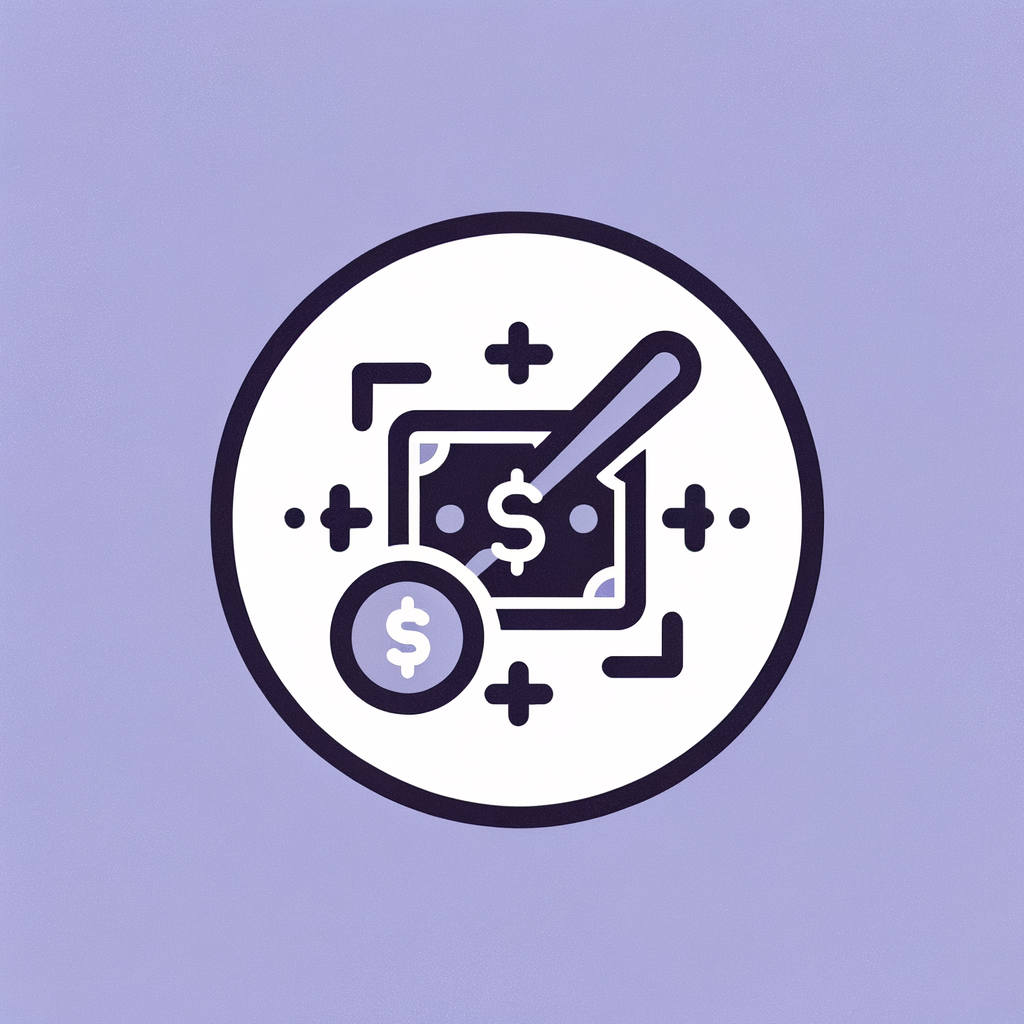Advertiser Disclosure
Last update: November 16, 2024
4 minutes read
What Is Loan Consolidation?
Learn the benefits of loan consolidation, steps to consolidate, and options for a debt-free future. This financial move can streamline your bills, potentially saving you money and stress.

By Brian Flaherty, B.A. Economics
Edited by Rachel Lauren, B.A. in Business and Political Economy
Learn more about our editorial standards



By Brian Flaherty, B.A. Economics
Edited by Rachel Lauren, B.A. in Business and Political Economy
Learn more about our editorial standards
Are you feeling stressed about different debts every month? Ever wondered about loan consolidation and how it could make your financial life simpler? Debt consolidation might be the solution you need. Let's explore how it works.

Key takeaways
- Debt consolidation merges multiple debts into one, potentially with better terms
- A good fit for people with good credit who can get better interest rates
- Benefits include a single payment, possibly lower rates, and credit score improvements
What is loan consolidation?
Loan consolidation is the process of combining multiple loans into a single, new loan, usually with better payoff terms like a lower interest rate or monthly payment. This financial move can streamline your bills, potentially saving you money and stress.
How does debt consolidation work?
Here's how it works: you get a new loan, preferably at a lower interest rate than the average of your debts, and use it to pay off a bunch of different debts. Instead of keeping track of different balances with different interest rates and due dates, you switch to handling just one loan. It makes things simpler.
There are two main options to consolidate your debt:
- Consolidation loan: This is usually just a regular personal loan. You get a chunk of money, use it to pay off different debts, and then you owe the money to the loan provider.
- Balance-transfer credit card: To tackle smaller credit card debt balances, you move your existing balances to a new card, preferably one with a 0% interest rate for a limited time. Be aware here, the interest rate shoots up after the promotional period, there are limits to how much you can transfer, and you’re often charged a balance transfer fee.
Who should consider loan consolidation?
If you have good credit and want to organize your finances, consolidation might be a good idea. If your credit score is high, you could get much lower interest rates than what you currently have. Here's what you're looking to achieve:
Debt Type | Average APR (Q1 2024) |
|---|---|
Credit Card | 27.7% |
Debt Consolidation Loan APR | 22.6% |
While credit cards typically have a fairly consistent interest rate, the rate on debt consolidation loans can vary widely. If you have good credit, you might be able to achieve a rate of around 8%. With poor credit, though, that might rise to more than 30%.
How to pick your debt consolidation path?
Deciding whether or not to consolidate your loans requires careful thought. Use this checklist:
- Look closely at your budget.
- Talk to your creditors—sometimes they'll work with you.
- Search for the best loan offers.
- Do the math to make sure it's a good deal.

TuitionHero Tip
Be careful when choosing a lender. Look for a trustworthy one, not one that might cause more problems.
When is debt consolidation the right move?
If you've got good credit and want to save money, it could be right for you. But if your credit score isn't great, or if you can manage your credit cards without any issues, then maybe debt consolidation isn't the best choice for you. Figure out where you are, and then decide what's best.
Remember, debt consolidation isn’t just about the potential benefits of a lower interest rate. Even if your overall rate stays the same, managing just one monthly payment might reduce headaches.
In addition, debt consolidation can occasionally unlock new ways to manage repayments. In the world of federal student loans, for instance, debt consolidation is sometimes necessary to access income-driven repayment plans.
Compare private student loans now
TuitionHero simplifies your student loan decision, with multiple top loans side-by-side.
Compare Rates
Dos and don'ts of debt consolidation
Making debt consolidation easy involves doing some smart things and avoiding common mistakes. Let's set up a plan to avoid problems and move towards being debt-free.
Do
Check your credit score before applying.
Calculate total fees and interest saved.
Shop around for the best loan offers.
Manage paid-off accounts wisely.
Try to keep up with new payments.
Don't
Close all of your credit cards thinking it will improve your credit (unless you really need to)
Continue using the credit cards you racked the debt up on originally in the same way
Ignore reading the fine print.
Jump at the first option without comparing.
Forget payments amounts and due dates.

Advantages and disadvantages of debt consolidation
Let's look at the pros and cons of debt consolidation. This will help you figure out if it's the right move for you.
- Puts all your monthly payments into one bill
- Might lower your interest rates, saving you money
- Fixed rates make things stable and predictable
- Could boost your credit score by having different types of credit
- Gives you a clear date for when you'll finish paying off your debt
- Might have fees, like origination or balance transfer fees
- You need good to excellent credit for the best rates
- Doesn't fix the root spending issue—it's a helpful tool, not a cure
- There's a risk of getting into more debt if old habits stick around

Why trust TuitionHero
At TuitionHero, we understand managing college finances is challenging. We provide assistance with private student loans, FAFSA, and debt consolidation. Our tools and expert advice help you make smart financial choices. We're here to simplify your financial situation and help you confidently manage your debt.
Frequently asked questions (FAQ)
Combining your debts can have different impacts on your credit depending on your situation. If consolidating your existing debt reduces your credit mix or average account age, for instance, it might lower your score. But following the new, easier payment plan also helps show you're good at making payments, which might improve your score over the long run.
Student loans are usually consolidated on their own, not mixed with other debts like credit cards. This is because student loans have different interest rates and terms.
You can consolidate them through special programs made for educational debt - the government offers some. To learn more about handling student loans, check out our options for student loan refinancing at TuitionHero.
If you miss a payment on a combined loan, it can cause some big issues. You might have to pay extra fees and your credit score might take a hit.
It's really important to know the details of your loan. Making payments on time and regularly is key to keeping your agreement strong and maintaining a good credit score.
Final thoughts
When dealing with money issues, debt consolidation is a reliable tool to help you streamline the debt payoff process. It's not just about making payments easier; it's about finding a way to be financially free and less stressed.
Keep in mind, you're the one in control of this tool, so use it wisely. If you're facing the ups and downs of educational costs, TuitionHero is here to help you find your way. Join us for more advice and personalized help as we navigate toward a better financial future.
Source
Author

Brian Flaherty
Brian is a graduate of the University of Virginia where he earned a B.A. in Economics. After graduation, Brian spent four years working at a wealth management firm advising high-net-worth investors and institutions. During his time there, he passed the rigorous Series 65 exam and rose to a high-level strategy position.
Editor

Rachel Lauren
Rachel Lauren is the co-founder and COO of Debbie, a tech startup that offers an app to help people pay off their credit card debt for good through rewards and behavioral psychology. She was previously a venture capital investor at BDMI, as well as an equity research analyst at Credit Suisse.
At TuitionHero, we're not just passionate about our work - we take immense pride in it. Our dedicated team of writers diligently follows strict editorial standards, ensuring that every piece of content we publish is accurate, current, and highly valuable. We don't just strive for quality; we aim for excellence.
Related posts
While you're at it, here are some other college finance-related blog posts you might be interested in.
Shop and compare student financing options - 100% free!

Always free, always fast
TuitionHero is 100% free to use. Here, you can instantly view and compare multiple top lenders side-by-side.

Won’t affect credit score
Don’t worry – checking your rates with TuitionHero never impacts your credit score!

Safe and secure
We take your information's security seriously. We apply industry best practices to ensure your data is safe.
Finished scrolling? Start saving & find your private student loan rate today





